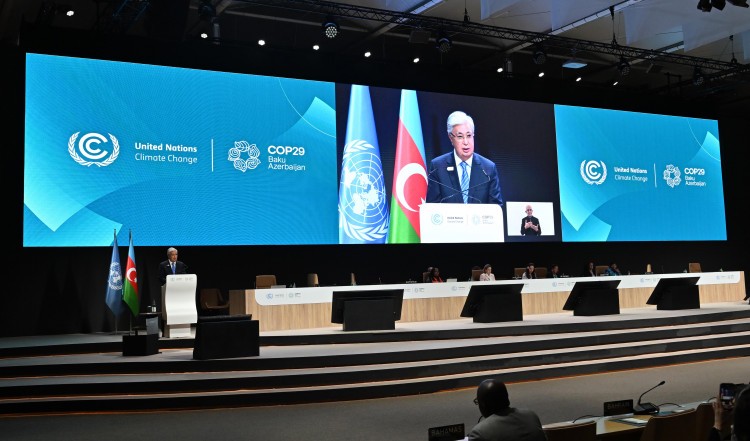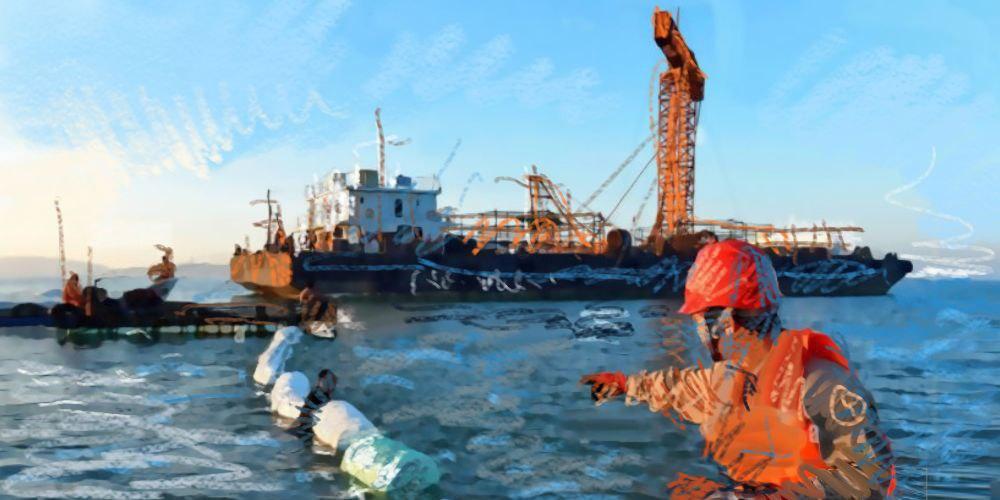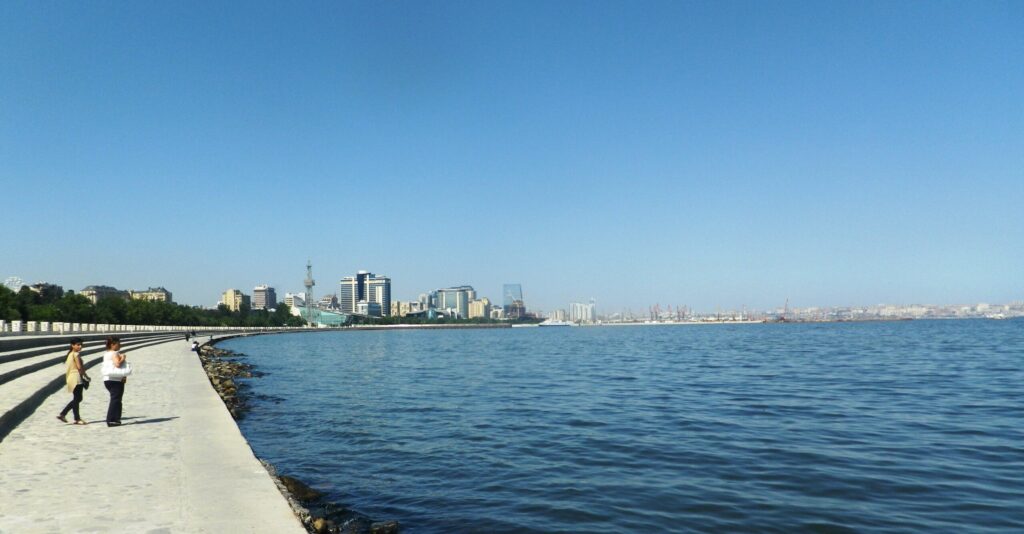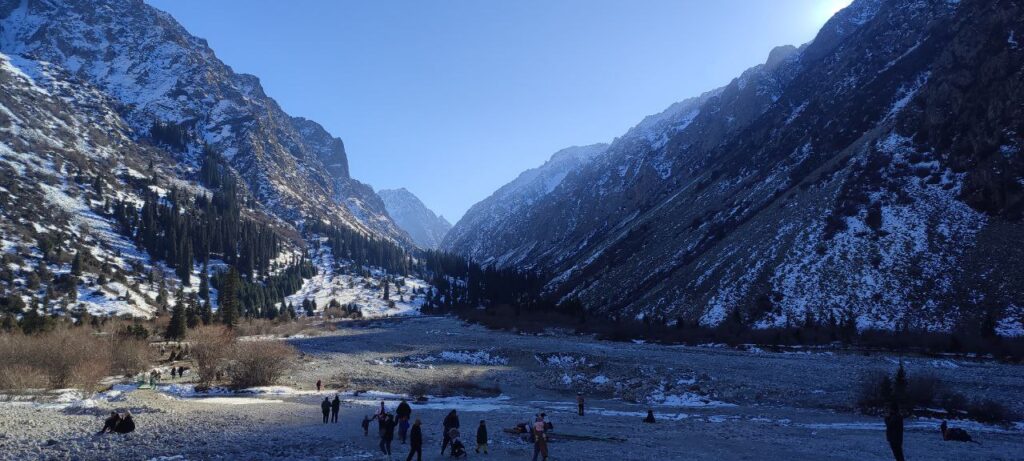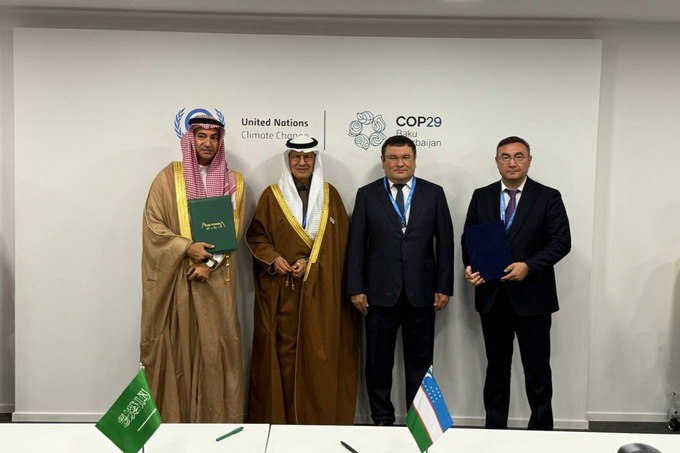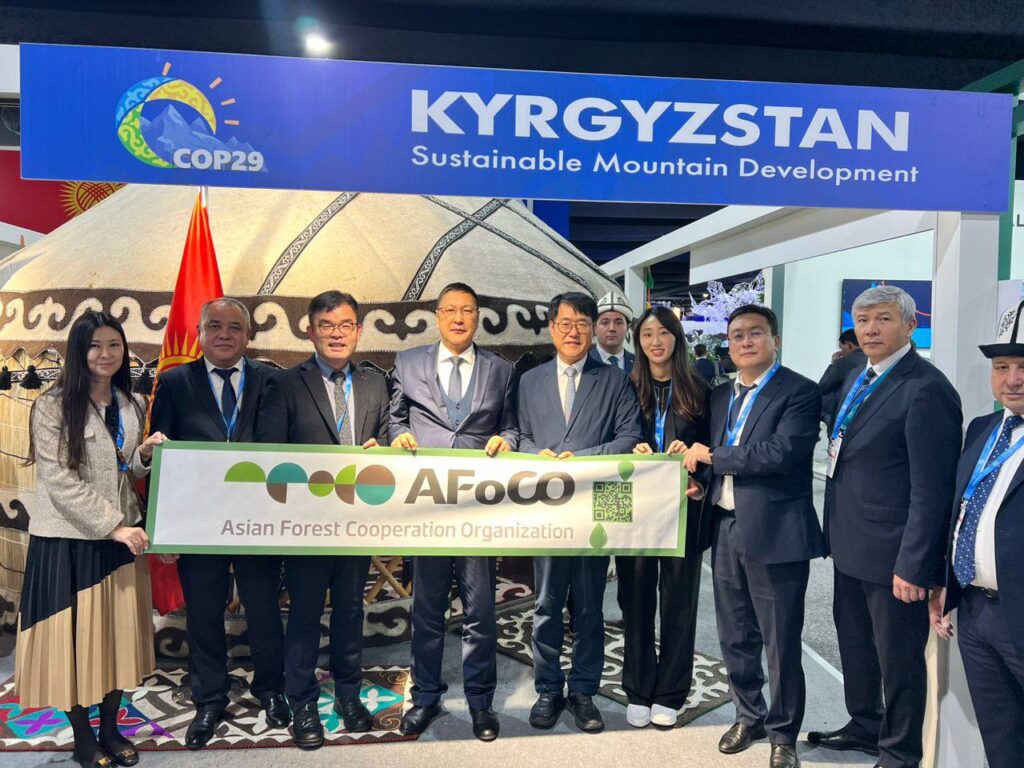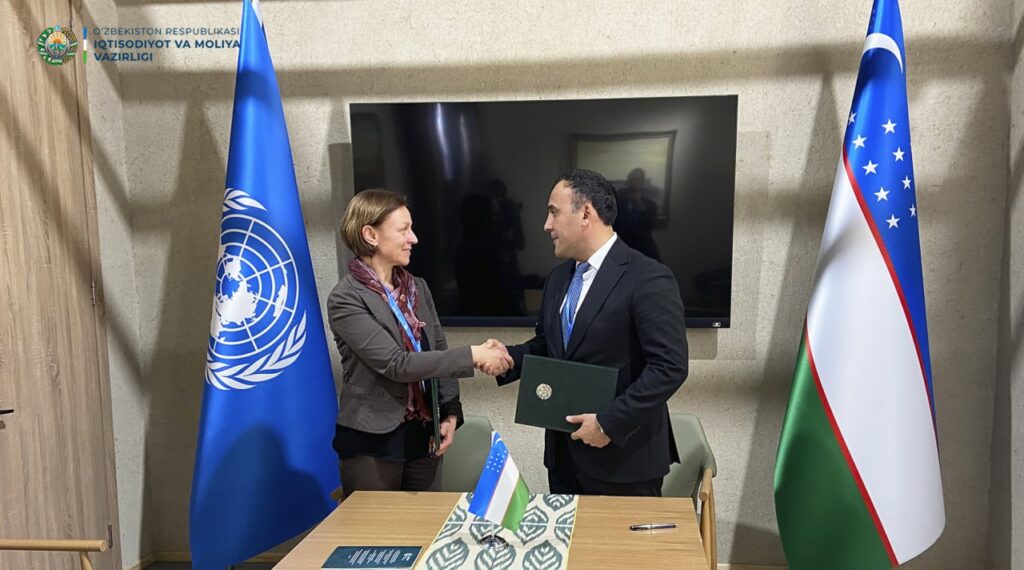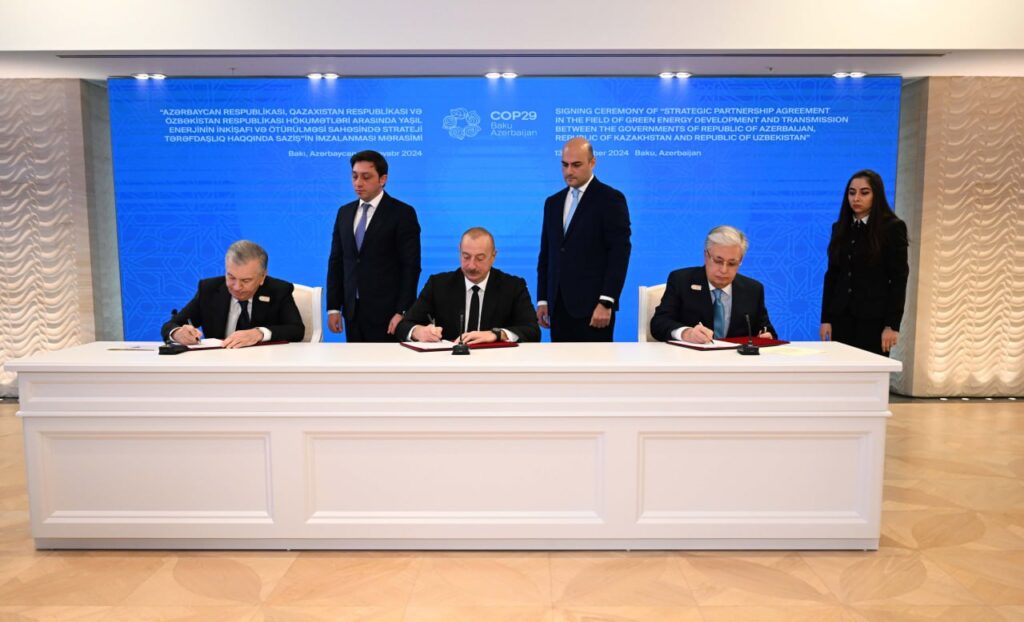Kazakhstan’s President Kassym-Jomart Tokayev has addressed the World Climate Summit in Baku, Azerbaijan. In his speech he spoke about the country’s environmental problems, but also mentioned opportunities for new eco-friendly projects. At the same time, many world leaders did not attend the summit, and activist Greta Thunberg said climate problems should be discussed at other venues.
Tokayev reaffirmed Kazakhstan’s commitment to the global climate agenda and emphasized the importance of international cooperation in the fight against climate change. He reminded forum participants that carbon neutrality by 2060 can only be achieved with close cooperation and technology exchange.
“Access to predictable funding and state-of-the-art technology is vital to achieving the targets. The NCQG should pay special attention to regions most vulnerable to climate change, including landlocked developing countries. Despite accounting for only 1% of global emissions, Central Asia faces multiple climate risks. To increase efficiency, we must actively utilize advanced technologies such as artificial intelligence, satellite monitoring, and other digital tools to provide early warning and better management of water and land resources,” Tokayev said.
Tokayev added that Kazakhstan has opportunities for transition to better agriculture. According to him, the republic, which has 200 million hectares of agricultural land, is an ideal platform for introducing “carbon farming.” The president said these agricultural production methods can reduce emissions and improve soil quality.
“Our country provides 43% of the world’s uranium supply and plays a significant role in developing low-carbon nuclear power. In October this year, ROK citizens supported the construction of a nuclear power plant in a nationwide referendum. We strive to ensure the safety and efficiency of this project through partnership with the world’s technological leaders in energy”, added Tokayev.
He separately emphasized the problem of the world’s water resources. “Climate change is already seriously impacting the global water cycle. Water-related disasters account for more than 80% of all natural disasters. This year, the ROK faces unprecedented floods. To respond quickly in the future and recover from such emergencies, we are implementing a comprehensive risk management system. In partnership with France, Kazakhstan will hold the One Water Summit in December to actualize the water agenda. Participants of this forum will discuss the problems of global water management,” Tokayev said.
“Today, the Caspian Sea is under threat. Saving the world’s largest lake is a problem that requires long-term international cooperation. We support President Ilham Aliyev’s (Azerbaijan) initiative to create a group of experts from the Caspian littoral states. Additionally, Kazakhstan is taking concrete steps to preserve the Aral Sea,” he added.
Also, within the framework of the World Climate Summit in Baku, an important agreement for Kazakhstan’s water sector was signed. Deputy Prime Minister and Minister of National Economy Nurlan Baybazarov said the Islamic Development Bank will finance Kazakhstan’s $1.1 billion project for water resources development, which will be realized in nine regions.
Kazakhstan is not standing still
Today, Kazakhstan has several major environmental projects in operation. These include the Astana Green Belt, which has significantly improved the city’s ecology, reduced air pollution and created a natural barrier against dust storms. The project continues the mass planting of trees and shrubs and the creation of parks and squares within the city limits.
There is also a multi-year project to restore the Aral Sea. Its main goal is to increase the inflow of water from the Amu Darya River, which will allow the restoration of part of the ecosystem, support biodiversity, and improve the living conditions of the local population. The initiative provides for the construction of canals and dams and land reclamation.
In addition, there is a Biodiversity Conservation Program, which includes expanding protected areas and creating new reserves and national parks. There are also initiatives to combat plastic pollution. Here, one of the key measures was the restriction of the use of plastic bags and the creation of infrastructure for separate waste collection. Recently, Kazakhstan’s Prime Minister, Olzhas Bektenov, said that the mechanism of the payment program for enterprises that collect, transport, and recycle waste has been restarted. Also, environmental education is being introduced in the country’s schools.
A special place is occupied by the concept “Taza Kazakstan” (“Clean Kazakhstan”), approved by the government, aimed at the development of environmental culture for 2024-2029. According to the target indicators, by 2029, it is planned to increase the recycling of municipal waste from 25% to 38% and the share of citizens involved in activities to strengthen environmental education from 15% to 40%. According to the Ministry of Ecology and Natural Resources, more than 745,000 people participated in “Taza Kazakstan” this year; almost 160,000 tons of garbage were collected, and about 326,000 green plants were planted.
Twenty-two environmental initiatives from ten regions of Kazakhstan received financial support under the Global Environment Facility (GEF) Small Grants Program in Kazakhstan, implemented under the auspices of the United Nations Development Program (UNDP) in partnership with Kazakhstan’s Ministry of Ecology and Natural Resources. The projects will cover the Abai, Akmola, Almaty, East Kazakhstan, Zhetysu, Karaganda, Kostanai, Kyzylorda, Turkestan, and Ulytau regions.
According to the Ministry of Ecology, protected areas occupy more than 10% of Kazakhstan’s land surface. There are ten reserves, 14 national parks, seven natural reserves, 50 nature reserves, five protected areas, six botanical gardens, one dendrological park, and 25 natural monuments of local importance.
Three natural sites have been included in the UNESCO World Heritage List: “Saryarka – steppes and lakes of Northern Kazakhstan” (Naurzum and Korgalzhyn reserves); “Western Tien Shan,” jointly with Uzbekistan and Kyrgyzstan (Aksu-Zhabagli and Karatau Nature Reserves and Sairam-Ugam National Park); and “Cold winter deserts of Turan” (Altyn-Emel National Park, Barsakelmes Nature Reserve).
Serious contradictions
Despite the importance of the agenda, many world leaders did not attend the environmental summit in Baku. The Swedish activist Greta Thunberg has spoken out about the staging of the conference in Baku. She took part in a rally in Tbilisi, Georgia, where activists are vocalizing that Azerbaijan does not deserve to host the climate talks because of its repressive policies.
Thunberg called Azerbaijan “a repressive, occupying state that has committed ethnic cleansing and that continues to crack down on Azerbaijani civil society.” She accused Baku of using the summit as “a chance to justify its crimes and human rights violations.” “We cannot give them any legitimacy in this situation, which is why we stand here and say no to the Azerbaijani regime,” Thunberg said. Her article, which shared similar content, also appeared in the Guardian.
At the same time, due to international tensions and political situations in several countries, many leaders did not attend the COP29 summit, including European Commission President Ursula von der Leyen, French President Emmanuel Macron, and German Chancellor Olaf Scholz. Scholz and Von der Leyen explained their absence due to complex internal processes. At the same time, Macron, according to the press, ignored the summit because of the long-standing conflict in Nagorno-Karabakh, where France supported Armenia against Azerbaijan.
U.S. President Joe Biden, Russian President Vladimir Putin, and Brazilian President Luiz Inacio Lula da Silva did not attend the summit. Canadian Prime Minister Justin Trudeau, Indian Prime Minister Narendra Modi, Chinese President Xi Jinping, South African Prime Minister Cyril Ramaphosa, and Australian Prime Minister Anthony Albanese did not come. Most of these leaders sent representatives to Baku.
States already being seriously affected by climate change have expressed dissatisfaction with the slow and ineffective response of the international community. For example, Papua New Guinea Prime Minister James Marape announced that the country would not attend COP29 in protest at the lack of “swift support for the victims of climate change” from major countries. Marape said he was doing so in the interest of all small island nations.
